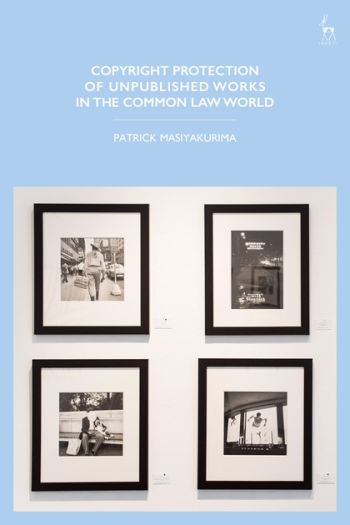We will be closed from 5pm Thursday 17th April for the Easter Bank Holidays, re-opening at 8.30am on Tuesday 22nd April. Any orders placed during this period will be processed when we re-open.

This timely piece of scholarship looks at copyright protection of unpublished works such as letters, diaries, manuscripts, photographs, memoranda, sketches, private journals, government records, and drafts intended for future publication. Although the book's primary focus is the treatment of unpublished works in Britain, it also relies extensively on materials from Australia, Canada and the USA, as well as on examples from two civilian systems, Germany and France, thus providing dualistic and monistic perspectives on moral rights protection.
Under contemporary British copyright law, such works are protected by the Copyright, Designs and Patents Act 1988. In addition, the Berne Convention also anticipates that unpublished works shall receive protection. While unpublished works are, in general, assimilated to the treatment of published works, there are notable differences in the strength of protection afforded to published and unpublished works. In fact, contemporary British copyright law confers stronger and longer protection on unpublished works.
The unpublished status of a work assumes considerable significance in the framework for determining: qualification for copyright protection, the extent of copyright protection, exceptions to copyright infringement and the remedies for copyright infringement. The book considers whether protection of unpublished works is justified. The issue requires an understanding of copyright in unpublished works from historical, comparative and normative perspectives.
The book contributes to the understanding of why cumulative protection of unpublished works emerged and exceptions to rights in unpublished works evolved. Moreover, the historical analysis deployed in the book may aid the task of applying the law to “new circumstances”.